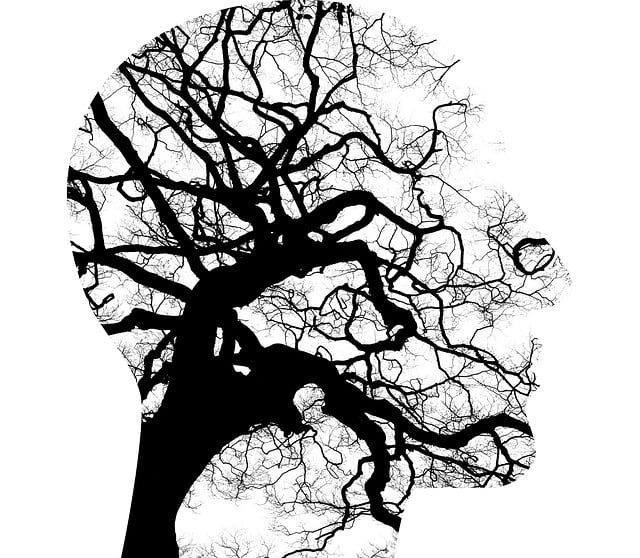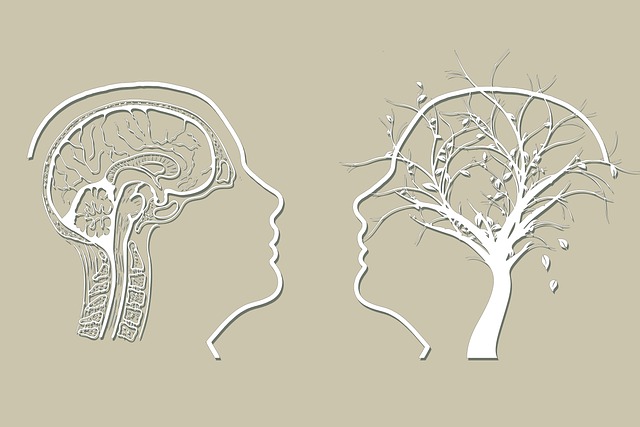Anxiety disorders, particularly PTSD, significantly impact daily life in Northglenn. Effective management strategies for PTSD include therapy combining Cognitive Behavioral Therapy (CBT), Eye Movement Desensitization and Reprocessing (EMDR), Compassion Cultivation Practices, and Communication Strategies. CBT targets negative thought patterns, empowering individuals to overcome fears. Mindfulness techniques like meditation and relaxation exercises are powerful tools for stress reduction and emotional resilience. Holistic approaches including lifestyle changes, self-care practices, and support systems are crucial. For severe cases, professional help through Northglenn Post-Traumatic Stress Disorder Therapy and exposure therapy is vital, enhancing resilience and fostering control in managing anxiety.
Anxiety is a prevalent challenge, affecting many in Northglenn and beyond. This article explores effective management techniques to combat anxiety and its related conditions, such as Post-Traumatic Stress Disorder (PTSD). We delve into evidence-based approaches like Cognitive Behavioral Therapy (CBT), offering a powerful tool for navigating anxious thoughts. Additionally, we uncover mindfulness practices and lifestyle shifts that foster resilience. By exploring these strategies, individuals can find calming and support systems tailored to their unique needs, promoting overall well-being in Northglenn Post-Traumatic Stress Disorder therapy.
- Understanding Anxiety and Post-Traumatic Stress Disorder (PTSD)
- Cognitive Behavioral Therapy (CBT): A Powerful Tool for Anxiety Management
- Mindfulness and Relaxation Techniques to Calm the Mind
- Lifestyle Changes and Support Systems for Overcoming Anxiety
Understanding Anxiety and Post-Traumatic Stress Disorder (PTSD)

Anxiety is a natural response to stress or perceived threats, but when it becomes overwhelming and persistent, it can significantly impact daily life. Understanding this complex emotion involves recognizing its various forms, including Generalized Anxiety Disorder and Post-Traumatic Stress Disorder (PTSD). PTSD, prevalent among Northglenn individuals, is a condition that develops after exposure to traumatic events, leading to intense feelings of fear, avoidance, and reliving the trauma.
Effective management of anxiety disorders often involves a combination of treatments tailored to individual needs. For PTSD, therapy plays a pivotal role in healing. Northglenn Post-Traumatic Stress Disorder therapy typically includes evidence-based approaches like Cognitive Behavioral Therapy (CBT) and Eye Movement Desensitization and Reprocessing (EMDR), which help individuals process traumatic memories and develop healthy coping strategies. Complementing these treatments are Compassion Cultivation Practices, emphasizing self-compassion and mindfulness, and Communication Strategies, fostering open dialogue to address underlying issues.
Cognitive Behavioral Therapy (CBT): A Powerful Tool for Anxiety Management

Cognitive Behavioral Therapy (CBT) has emerged as a highly effective tool in managing anxiety disorders, including Post-Traumatic Stress Disorder (PTSD), as demonstrated by many successful cases in Northglenn. This form of therapy focuses on identifying and changing negative thought patterns that contribute to anxious feelings. By challenging these distorted thoughts and replacing them with more realistic and positive ones, CBT empowers individuals to overcome their fears and anxiety symptoms.
The process involves learning coping strategies and skills to manage stress, which can be especially beneficial for healthcare providers at risk of burnout. Compassion cultivation practices, integrated into CBT, teach individuals to foster self-compassion, enhancing emotional resilience. Additionally, developing a structured self-care routine as part of the therapy can significantly improve mental health outcomes, providing tools for long-term anxiety management.
Mindfulness and Relaxation Techniques to Calm the Mind

Mindfulness and relaxation techniques have emerged as powerful tools to manage anxiety, offering individuals a sense of calm amidst stressful situations. One effective approach is practicing mindfulness meditation, which involves focusing on the present moment without judgment. This simple yet profound practice helps individuals become aware of their thoughts and emotions, enabling them to detach from anxious feelings. By observing their minds without getting caught up in worries or fears, people can cultivate a deeper sense of inner peace.
Additionally, relaxation techniques like deep breathing exercises, progressive muscle relaxation, and yoga play a significant role in anxiety management. These practices promote physical calmness, reducing the body’s stress response. For instance, Northglenn Post-Traumatic Stress Disorder (PTSD) Therapy often incorporates mindfulness and relaxation to help individuals process traumatic memories while experiencing heightened anxiety. Incorporating self-care practices such as these into daily routines can significantly enhance mood management and contribute to a healthier mental state, fostering resilience against anxiety disorders.
Lifestyle Changes and Support Systems for Overcoming Anxiety

Overcoming anxiety involves a multifaceted approach, and lifestyle changes play a pivotal role. Engaging in regular physical activity, maintaining a balanced diet, and prioritizing adequate sleep can significantly reduce anxiety levels. These simple yet powerful habits not only promote overall well-being but also enhance one’s resilience to stress. Additionally, building and leveraging support systems are essential. Talking to friends, family, or support groups provides a safe space to express feelings, offering both emotional comfort and practical perspectives.
For those with severe or chronic anxiety, seeking professional help is crucial. Northglenn Post-Traumatic Stress Disorder (PTSD) Therapy, for instance, has proven effective in managing anxiety disorders. Techniques such as cognitive-behavioral therapy (CBT), mindfulness practices, and exposure therapy can help individuals confront and overcome their fears. Moreover, developing inner strength through self-care practices and risk management planning for mental health professionals can further bolster one’s ability to navigate anxiety-inducing situations, fostering a sense of control and empowerment.
Anxiety management is a multifaceted process, as demonstrated by the various techniques discussed in this article. From understanding the roots of anxiety and PTSD to employing evidence-based therapies like CBT, adopting mindfulness practices, and making lifestyle changes, individuals in Northglenn can effectively navigate and overcome their anxious disorders. Building supportive systems plays a crucial role in this journey. By integrating these strategies into daily life, one can achieve better mental well-being and improved quality of life.














